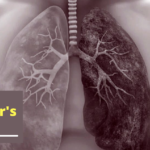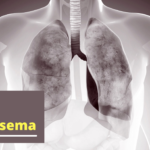Bronchiectasis is a chronic lung disease characterized by the dilation of the bronchi that can cause serious health problems in which there is permanent enlargement of parts of the airways of the lung. It usually results from infection, most commonly caused by “mycobacteria” (caused by bacteria thought to be similar to tuberculosis). Bronchiectasis may result from acquired causes, including pneumonia, tuberculosis, immune system problems, as well as from the genetic disorder caused by cystic fibrosis.
Bronchiectasis can also occur following trauma to the lungs or chest wall, inhalation of foreign bodies, idiopathic inflammatory bowel disease (including ulcerative colitis and Crohn’s disease), connective tissue disorders or abscesses in the chest. Bronchiectasis may also be caused by Lung infections, Impaired host defenses, Aspergillosis, Autoimmune diseases, Lung injury, Congenital, Cigarette smoking. It most commonly affects children and young adults between 8–30 years of age. The disease is more common in women and increases as people age.
Bronchiectasis is a condition where there is permanent damage to the airways that can cause life-threatening lung infections and problems with breathing. It may be caused by repeated respiratory infections, accidents such as road traffic accidents or an injury that damages the lungs, or medicines that affect how well your lungs work such as chemotherapy.






